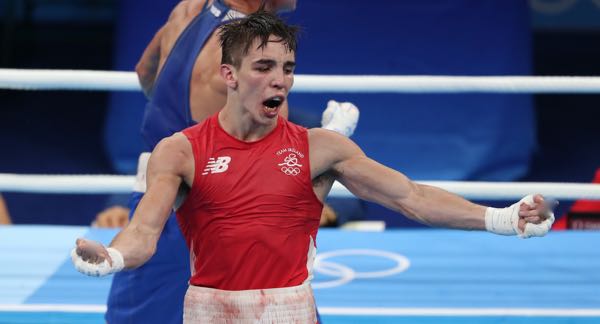
Even prior to the opening ceremonies at the 2016 Summer Olympic Games in Rio, the worldwide event was covered by a dark cloud and cast into controversy due to both the Zika virus and heavily polluted waters.
Several major athletes from across the globe opted to drop out of the Games for one reason or another, but most directly cited Zika as their primary reason.
When the Games did eventually get underway, the Zika concerns slowly faded away. However, the water issues once again bubbled to the surface when the Olympic diving pool turned from a clear blue to a murky green. Still, it wasn’t enough to crack the top five controversies that would ultimately engulf the Games of the XXXI Olympiad.
Here’s a look at the five controversies that stood front-and-center as closing ceremonies began.
5. Boxing scandals abound
It was a bad year for Olympic boxing for a myriad of reasons, but two very specific incidents stood out above the rest.
In early August, Moroccan boxer Hassan Saada was arrested and charged with rape after two Brazilian maids accused him of assault. The women told police that Saada pushed one up against the wall and squeezed her leg before proceeding to grab the second woman’s breasts and motioning that he wanted to pay them for sex.
Under Brazilian law, any non-consensual sex act is considered rape.
Saada was stripped of his Olympic competitor status and remained in police custody for several days before ultimately being released following a habeus corpus petition from his lawyer. He remains under investigation and could face 6-10 years in prison if convicted.
Only a few short days later, boxer Jonas Junias of Namibia, who was his country’s flag bearer during the opening ceremonies, was also arrested and accused of sexual assault after he grabbed and kissed a Brazilian maid.
“Brazilian law needs to be respected and this is something that we have to agree on,” Mario Andrada, spokesman for the Rio 2016 Organizing Committee, told USA Today after the arrest. “What we need to do is make sure that all the legal procedures are being followed and we understand that they have.”
Junias was allowed to compete in his match, eventually being defeated by France’s Hassan Amzile (3-0).
Similarly to Saada, if Junias is convicted, he faces 6-10 years in prison.
Meanwhile, back in the ring, judging controversies once again took center stage — something that seems to be a norm for Olympic boxing.
Several fighters and several camps complained about suspect decisions, including Ireland’s Michael Conlan, who exploded in the ring on live TV following a loss by decision to Russia’s Vladimir Nikitin.
“They are f—— cheats. I am never boxing for anybody again. They are f—— cheats, paying everybody. I don’t care if I’m swearing on live TV,” Conlan said following his match (via Canada’s Olympic Network). “I came here to win Olympic gold and I’ve had my dream shattered. I wanted to go back to Ireland as a winner, not a loser. And today just showed how corrupt his organization is.”
There were more than a handful of bouts that ended in similar fashion, all of which drew ire from the athletes themselves, their coaches and teams, as well as the millions of fans watching around the world.
Ultimately, the International Boxing Association (AIBA) expelled a number of judged and referees — possibly up to six — after it determined they were not performing “at the level expected.” Additionally, the AIBA also reassigned its most senior executive, who previously had operational control for the Olympic tournament.
“They [the AIBA] are corrupt. It is a select few people that are selected to referee at an Olympic Games. You have to be a member of the tribe. You have to be a referee that they hand pick,” veteran boxing analyst Russ Anber told CON. “And these guys they have sent home, they are being scapegoated, they were just following orders, now they are being scapegoated. This is posturing by the AIBA. If you really wanted to do something you would have had a jury overturn the decisions.”
The AIBA has, of course, denied any and all corruption allegations.
4. IOC executive caught scalping tickets
71-year-old Patrick Hickey, president of the Olympic Council of Ireland, the European Olympic Committees and International Olympic Committee executive, was arrested on August 17 and charged with forming a cartel, ticket touting and illicit marketing.
In addition to Hickey, nine others were also accused of organizing the scam, while 40 more were arrested for selling the tickets above face value.
“Continuing our investigation, civil police discovered the involvement of Patrick in the international scheme of ticket scalping,” the Rio police fraud unit said in a statement (via AP).
In total, the ticket scam was valued at roughly $3 million, authorities said.
“The OCI is aware of the media stories regarding Pat Hickey and we are seeking total clarity on the situation before we comment further,” The Olympic Council of Ireland said on its website.
Following his arrest, Hickey became mysteriously ill and was hospitalized due to a history of cardiac problems. He was later released and transferred to Bangu Prison where he currently shares a cell with another prisoner as he awaits a hearing in front of a judge next week.
Hickey has been denied bail.













